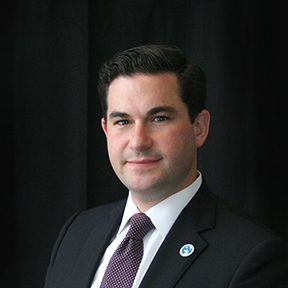The challenges facing the United States and world—from the global threat of climate change, complicated opportunities like the rising impact of artificial intelligence and emerging technologies, to wild cards like potential conflict with North Korea or a nuclear-armed Iran—all beg the vital question: “What is the role of the United States in addressing these challenges?”
After over four decades of military and government service, and as the current President of the Brookings Institution, John R. Allen is uniquely qualified to answer that question. He has dedicated much of his time to assessing the future of U.S. leadership well into the 21st century, and to viewing these complex challenges through the unique lens of American leadership – that being the values-based leadership from those in civil society, the business sector, and multilateral and democratic institutions, in addition to the U.S. government.
Please join the Brookings Institution and YPFP in discussing these challenges in greater detail, as well as the transformational nature of American leadership all around the world.
When: October 29, 2018
Check-in: 5:30pm
Discussion: 6:00-7:00pm
Reception: 7:00-8:00pm
Location: Brookings Institution
Falk Auditorium
1775 Massachusetts Ave, NW
Washington, D.C. 20036
.jpg)
John Rutherford Allen assumed the presidency of the Brookings Institution in November 2017, having most recently served as chair of security and strategy and a distinguished fellow in the Foreign Policy Program at Brookings. Allen is a retired U.S. Marine Corps four-star general and former commander of the NATO International Security Assistance Force (ISAF) and U.S. Forces in Afghanistan.
Allen served in two senior diplomatic roles following his retirement from the Marine Corps. First, for 15 months as senior advisor to the secretary of defense on Middle East Security, during which he led the security dialogue for the Israeli/Palestinian peace process. President Barack Obama then appointed Allen as special presidential envoy to the Global Coalition to Counter ISIL, a position he held for 15 months. Allen’s diplomatic efforts grew the coalition to 65 members, effectively halting the expansion of ISIL. In recognition of this work, he was presented the Department of State Distinguished Honor Award by Secretary John Kerry and the Director of National Intelligence Distinguished Public Service Award by Director James Clapper.
During his nearly four-decade military career, Allen served in a variety of command and staff positions in the Marine Corps and the Joint Force. He commanded 150,000 U.S. and NATO forces in Afghanistan from July 2011 to February 2013. Allen is the first Marine to command a theater of war. During his tenure as ISAF commander, he recovered the 33,000 U.S. surge forces, moved the Afghan National Security Forces into the lead for combat operations, and pivoted NATO forces from being a conventional combat force into an advisory command.
Allen’s first tour as a general officer was as the principal director of Asia-Pacific policy in the Office of the Secretary of Defense, a position he held for nearly three years. In this assignment, he was involved extensively with policy initiatives involving China, Taiwan, Mongolia, and Southeast Asia. Allen also participated in the Six Party Talks on the denuclearization of the Korean Peninsula and played a major role in organizing the relief effort during the South Asian tsunami from 2004 to 2005.
Among his other affiliations, Allen is a senior fellow at the Merrill Center of the Johns Hopkins School of Advanced International Studies and a senior fellow at the Johns Hopkins Applied Physics Laboratory. He is an “Ancien” of the NATO Defense College in Rome, and a frequent lecturer there.
Allen is the recipient of numerous U.S. and foreign awards.
He holds a Bachelor of Science in operations analysis from the U.S. Naval Academy, a Master of Arts in national security studies from Georgetown University, a Master of Science in strategic intelligence from the Defense Intelligence College, and a Master of Science in national security strategy from the National Defense University.

Joshua J. Marcuse is the founder and chairman of YPFP, a nonpartisan, nonprofit organization committed to fostering the next generation of foreign policy leaders. He served as President until 2012.
Josh serves as senior adviser for policy innovation in the Office of the Under Secretary of Defense for Policy, where he works on policy innovation, leadership development, and organizational change. He also established and leads the OSD Policy Design & Innovation Practice, and is a design thinking instructor and facilitator. Previously, he worked at the management consulting firm Booz Allen Hamilton and at the Council on Foreign Relations.
Josh is an adjunct fellow at the Center for Strategic & International Studies and is in the 2015 Next Generation National Security Leaders Program at the Center for a New American Security (CNAS). He was an Aspen Scholar at the Aspen Ideas Festival in 2009.
Josh is a fellow of the Truman National Security Project, where he co-leads the DoD Expert Group and advises the Leadership Development program. He serves on advisory boards of Atlas Corps, the Franklin Project of the Aspen Institute, LearnServe, Luke's Wings, Millennium Action Project, the Next Generation of Government Summit, the Project for the Study of the 21st Century, and Young Government Leaders. He works with interfaith couples at Sixth&i Synagogue.
Josh graduated from Dartmouth College. He is certified in change management from the McDonough School of Business at Georgetown University. He is pursuing a Gallup certification in executive coaching and a LUMA Institute certification in Human-Centered Design.
Josh is a New Yorker who lives in Washington, DC. with his wife, Cathryn. Together they started The Charcuterie Club of DC. Josh is a Board Member of YPFP, and will be moderating the event.